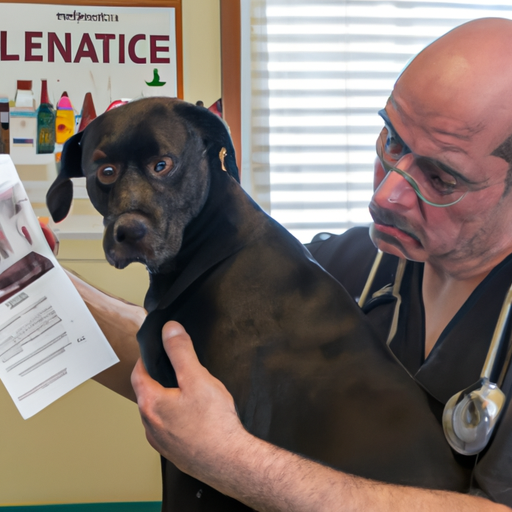Introduction
You love your dog, don’t you? But when that furry little friend of yours starts to show signs of black skin disease, your heart sinks. It’s a painful sight no dog lover ever wants to experience. But worry not, because you, as a caregiver, can help mitigate the situation. Let’s take a deep dive into understanding how to treat black skin disease in dogs.
Understanding Black Skin Disease in Dogs
Black Skin Disease, also known as Alopecia X, is a skin condition leading to hair loss and darkening of the skin in dogs. While it can affect any breed, it’s predominantly seen in:
- Pomeranians
- Alaskan Malamutes
- Chow Chows
Before you jump into treatment options, it’s important to understand the symptoms. These include:
- Gradual hair loss
- Hyperpigmentation (darkening of the skin)
- Dry and coarse skin texture
Approaching Treatment Options
Treating Black Skin Disease is not a one-size-fits-all situation. Various factors come into play, such as the breed of the dog, the severity of the condition, and underlying health issues.
Here are some common treatment options:
- Melatonin Therapy: This treatment involves giving your dog melatonin supplements to help stimulate hair regrowth.
- Topical Creams: Your vet might prescribe a topical cream to soothe the skin and promote hair growth.
- Dietary Changes: Certain foods can aggravate the condition, so making dietary changes can help.
| Treatment | Purpose |
|---|---|
| Melatonin Therapy | Stimulate hair regrowth |
| Topical Creams | Soothe skin and promote hair growth |
| Dietary Changes | Mitigate the condition |
Prevention is Better Than Cure
While treating Black Skin Disease is possible, preventing it in the first place is the best approach. Here’s what you can do:
- Regular grooming: This keeps the skin healthy and stimulates hair growth.
- Balanced diet: Feed your dog a balanced, nutritious diet to keep their skin healthy.
- Regular vet check-ups: Frequent vet check-ups can help identify the problem at an early stage.
When to Consult a Vet
If you notice any signs of Black Skin Disease, it’s always best to consult a vet. Early detection can make a significant difference in the treatment and the health of your dog.
FAQ
Q: Is Black Skin Disease contagious?
A: No, it’s not contagious. It cannot be transferred to other pets or humans.
Q: Can Black Skin Disease lead to other health complications?
A: While the disease itself is not life-threatening, it can indicate underlying health issues that need attention.
Q: Can it be completely cured?
A: While there’s no definitive cure, the condition can be managed with appropriate treatment and care.
Your love for your furry friend is immeasurable, and with the right information and approach, you can help them lead a healthy and comfortable life despite Black Skin Disease.



